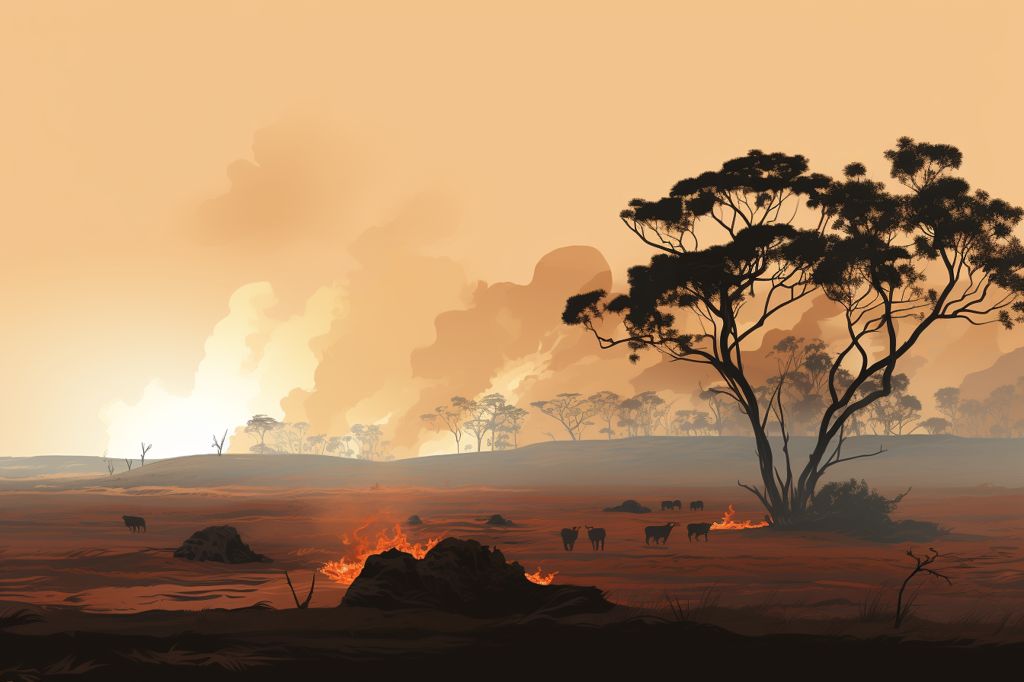A wildfire spanning over 90,000 hectares of grazing land has caused extensive damage to the environment and economy of Kagisano Molopo Local Municipality. This crisis has drawn deep concern from the North West Provincial Legislature Portfolio Committee, which is chaired by Hon. Bitsa Lenkopane. The wildfires have severely impacted PLAS farms, LRAD farms, and communal land, threatening sustainable agriculture in the region.
Wildfires Ravage Kagisano Molopo Municipality
The wildfires began on August 16, 2023, posing a severe challenge to the province’s efforts to combat issues of Poverty, Unemployment, and Inequalities. Hon. Lenkopane emphasized the importance of addressing these issues and ensuring that the Food Security & Nutrition programs in the province contribute towards agrarian transformation.
Impact of Climate Change on Wildfires
An interesting development is the timing of the fires, which coincides with the committee’s efforts to amend the National Veld and Fire Act of 1998. A public hearing on the matter is scheduled for August 22, 2023. The cause of the wildfires remains unknown, but Hon. Lenkopane believes this is an opportune time to acknowledge the impact of climate change on our environment and lives.
According to Hon. Lenkopane, climate change has far-reaching effects on various sectors, including agriculture, food security, water resources, human health, ecosystems, and biodiversity. She urgently called on the North West Provincial Government to contain the wildfires and prevent further losses in agricultural produce, reduce the availability of food for humans and animals, slow down vegetation growth, and threaten livelihoods.
Collaborative Efforts for Sustainable Agriculture
The committee is stressing the need for the government and civil society to assist farmers with grass and food for livestock since the fire has destroyed the grass. This assistance is crucial since most farmers rely on grass to feed their livestock. Hon. Lenkopane suggests that the Department of Agriculture should consider adopting climate-smart indicators to review farming methods and implement climate-smart agricultural practices across the province.
Furthermore, the committee has called on community members to stop littering, especially near farms, since discarded bottles can potentially ignite fires when exposed to extreme heat. Communities are encouraged to support farmers and firefighters in their efforts to control the fires.
Coherent Plan on Veld Fire Awareness
As a proactive measure, the committee plans to invite the Department of Rural Development and Land Reform, the Provincial Department of Agriculture and Rural Development, Economic Development, Environment and Tourism, and District Municipality to present a coherent plan on veld fire awareness and long-term veld fire preventative measures during the Legislature Oversight Week from August 29 to September 1. Additionally, research studies will be conducted to determine the cause of the wildfires and share their findings.
The wildfire crisis highlights the intricate relationship between environmental sustainability, agriculture, and human livelihoods in Kagisano Molopo. As the region continues to grapple with the ongoing fires, it is essential for government, civil society, and local communities to work together in finding solutions that address the root causes and promote climate-smart practices.








